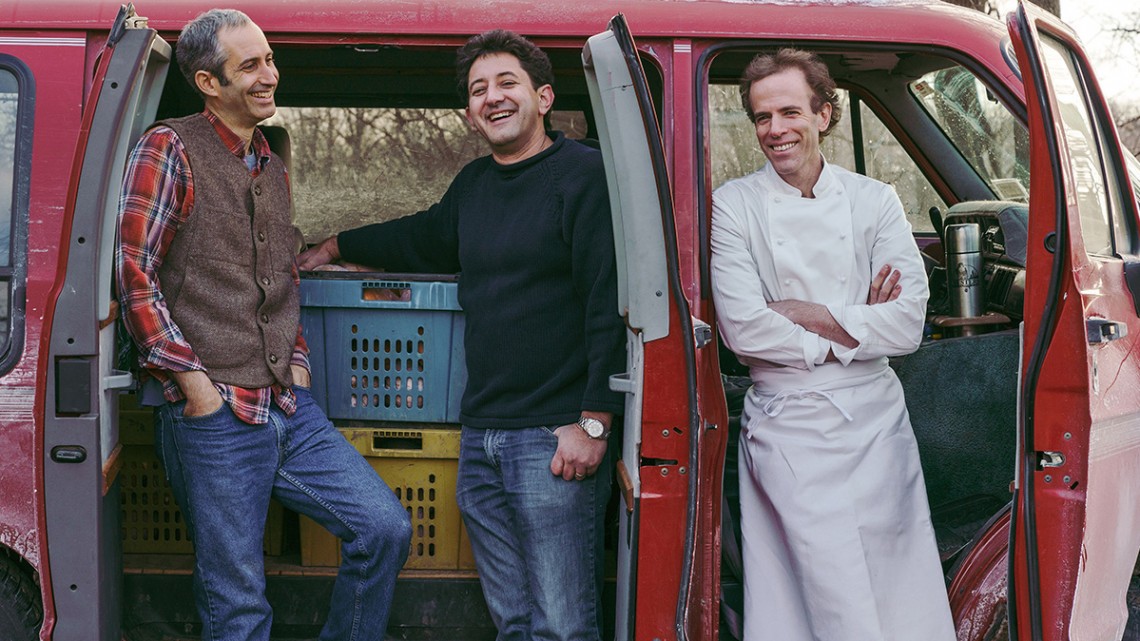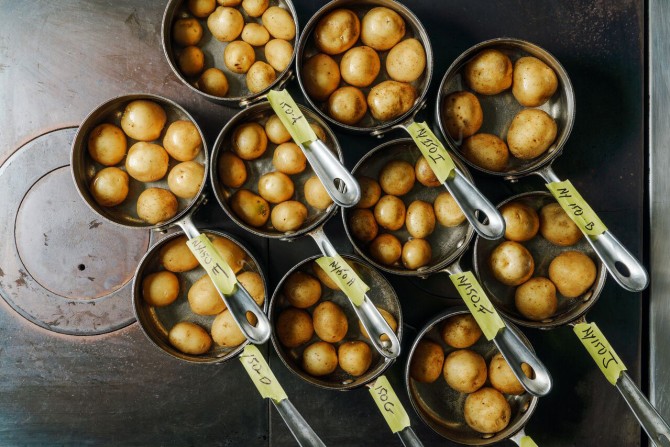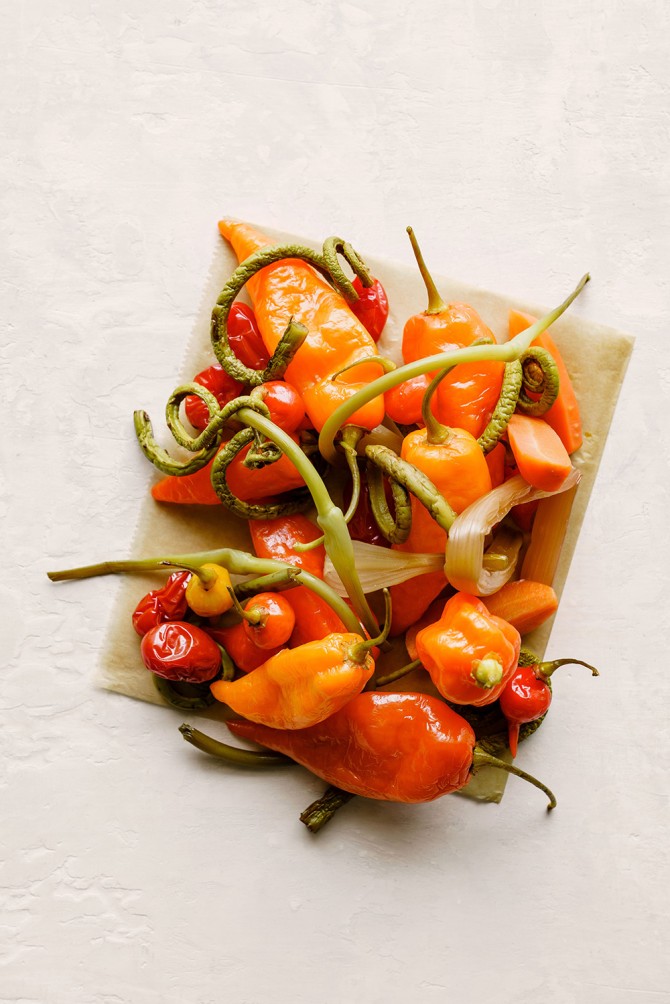
Row 7 Seed Co. founders, from left, Matthew Goldfarb, Michael Mazourek and Dan Barber.
New seed catalog restores vegetable flavor to savor
By Blaine Friedlander
Cornell plant breeder Michael Mazourek, Ph.D. ’08, noted chef Dan Barber and seed producer Matthew Goldfarb have launched a new vegetable seed company and catalog. The freshly minted Row 7 Seed Co. offers seeds that can turn a container garden or backyard plot into a summer vegetable bounty any foodie will crave.
“One of the biggest lessons I've learned working with breeders is that there’s a huge link between flavor and nutrition, and the craziest part is that no one talks about it. Flavor and aroma compounds – the same ones that make tomatoes and melons mouthwatering – often derive from essential nutrients. It’s nature’s way of telling us what we should be eating,” said Barber, of Blue Hill, a farm-to-table restaurant in New York City, who frequently collaborates with Mazourek.
“Similar to how the farm-to-table movement increased public awareness around the provenance of ingredients, with Row 7 we want to shift the culture around food to drive people toward more flavorful ingredients and define nutrition in terms of diets, not single ingredients,” he said.
Barber offers the experimental 898 squash as an example. “If you have an inherently more nutritious vegetable with three times the carotenoids of the average butternut, it's better for you and it doesn't need maple syrup or honey to make it delicious.”
Row 7 – named in a nod to the periodic table of elements – is launching with seeds bred by Cornell and University of Wisconsin, Madison researchers, with seed production managed by Goldfarb (a former Cornell Cooperative Extension associate in the Small Farms Program) and Petra Page-Mann in the Finger Lakes region of New York, to create stronger, more resilient plants. Their seed is all organic and grown in the U.S.
“We have a seed company that we’re using as a jumping-off point for what’s happening in the food system: flavor,” said Mazourek, associate professor in Cornell’s School of Integrative Plant Science. “We are enhancing the benefits of agro-ecology by using plants that work to support that system. We’re aiming to build capacity.”
Barber is a co-founder of the company. He has received many James Beard awards and wrote the best-selling book “The Third Plate.” About eight years ago, Barber met Mazourek and asked the plant breeder if he could develop a butternut squash that tasted good. Mazourek created the now-popular Honeynut squash, which is available throughout the Northeast and has been seen as far as Texas.
The new seed company catalog features the Badger Flame beet, bred by Irwin Goldman of the University of Wisconsin, Madison, which offers the sweetness of a beet without the usual earthiness – and it is good enough to eat raw. The Upstate Abundance potato, a golf-ball size spud with a cult following, offers a creamy texture and nutty flavor and was developed by Cornell’s Walter De Jong, associate professor of plant breeding.
Grocery store cucumbers typically lack flavor. But back in the day, cucumbers filled rooms with fragrance. Mazourek labored to rediscover the cukes of yore, by fusing heirloom flavors with modern disease resistance. The 7082 cucumber – still in an experimental phase – provides a hint of bitterness to add flavor complexity.
Bursting with citrus-like color, the bright Habanada pepper – which Mazourek developed as his delicious doctoral thesis – yields a floral aroma and melon-like sweetness of the habanero pepper, but without the burn.
Row 7 supports public plant-breeding research, aiding breeders and universities in the effort to improve food. While Mazourek is a co-founder of the company, he works pro bono. The company licenses the seeds, but a portion of the proceeds go to the land-grant universities that developed the seeds.
“Chefs are so influential. We have chefs helping us to tell the story of these highly nutritious vegetables and how they were developed. In an altruistic way, we’re telling the stories of Cornell and other land-grant universities – and how they’re very involved with plant breeding – which has traditionally been behind the scenes,” said Mazourek, a fellow at Cornell’s Atkinson Center for a Sustainable Future and a faculty adviser at Cornell’s Dilmun Hill student farm.
Aside from enjoying delicious, tasty vegetables – and making them easily available to the public – the catalog aims to contribute to the sustainability of plant research. “We will continue to be able to practice this discipline and to train future plant breeders,” said Mazourek. “We want to tell the story to a new generation.”
Media Contact
Get Cornell news delivered right to your inbox.
Subscribe


